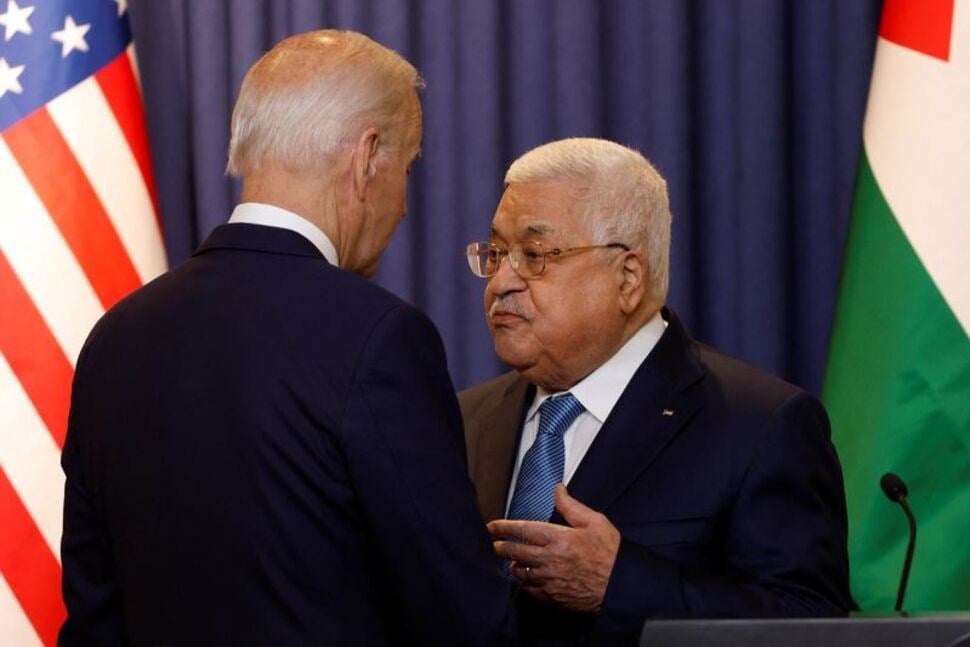Mahmoud Abbas remarks on distrusting US 'infuriates' White House
Mahmoud Abbass' remarks of distrusting the US came as he met with Russian President Vladimir Putin in the city of Astana, the capital of Kazakhstan.
-

Palestinian President Mahmoud Abbas and US President Joe Biden speaking after a statement, in Beit Lahm in the occupied West Bank, July 15, 2022 (Reuters)
The White House is "deeply disappointed" by the remarks of Palestinian leader Mahmoud Abbas who told Russian President Vladimir Putin that he had lost trust in the administration of the US President Joe Biden as a mediator between Palestine and the Israeli occupation, Axios reported on Saturday, citing a spokesperson for the US National Security Council.
President of the Palestinian Authority Mahmoud Abbas held a meeting with Putin in the city of Astana, the capital of Kazakhstan, according to an Axios report.
Read more: Abbas, Guterres discuss developments in Palestine
The two leaders met on the sidelines of the sixth Conference on Interaction and Confidence Building Measures, where according to the report, Abbas told Putin that the US could not mediate between Palestine and "Israel" and that he had lost trust in the US administration of President Joe Biden, adding that Russia's support to the Palestinian state is satisfying.
However, Axios noted that the US does not believe that Putin is the international partner qualified to address the Palestinian issue.
Citing a spokesperson for the US National Security Council, Axios reported that the White House was "deeply disappointed" by the remarks made by Abbas, while other sources told the outlet that the US officials communicated their resentment to Abbas’ advisors and that they "were furious".
Last July, US President Joe Biden visited occupied Palestine as his first stop on a tour in West Asia, where he met with Palestinian President Mahmoud Abbas, who expected from the American President to bring along with him new proposals regarding the Palestinian cause, which did not happen, thus the Palestinian frustration.
Read more: Abbas: 'Oslo' no longer exists, UN protects 'Israel'
Ahead of Biden's visit, Abbas said the US president was prioritizing Israeli interests and its integration into a regional security arrangement with Arab states, slamming the continued expansion of illegal Israeli settlements in the occupied West Bank.

 2 Min Read
2 Min Read








